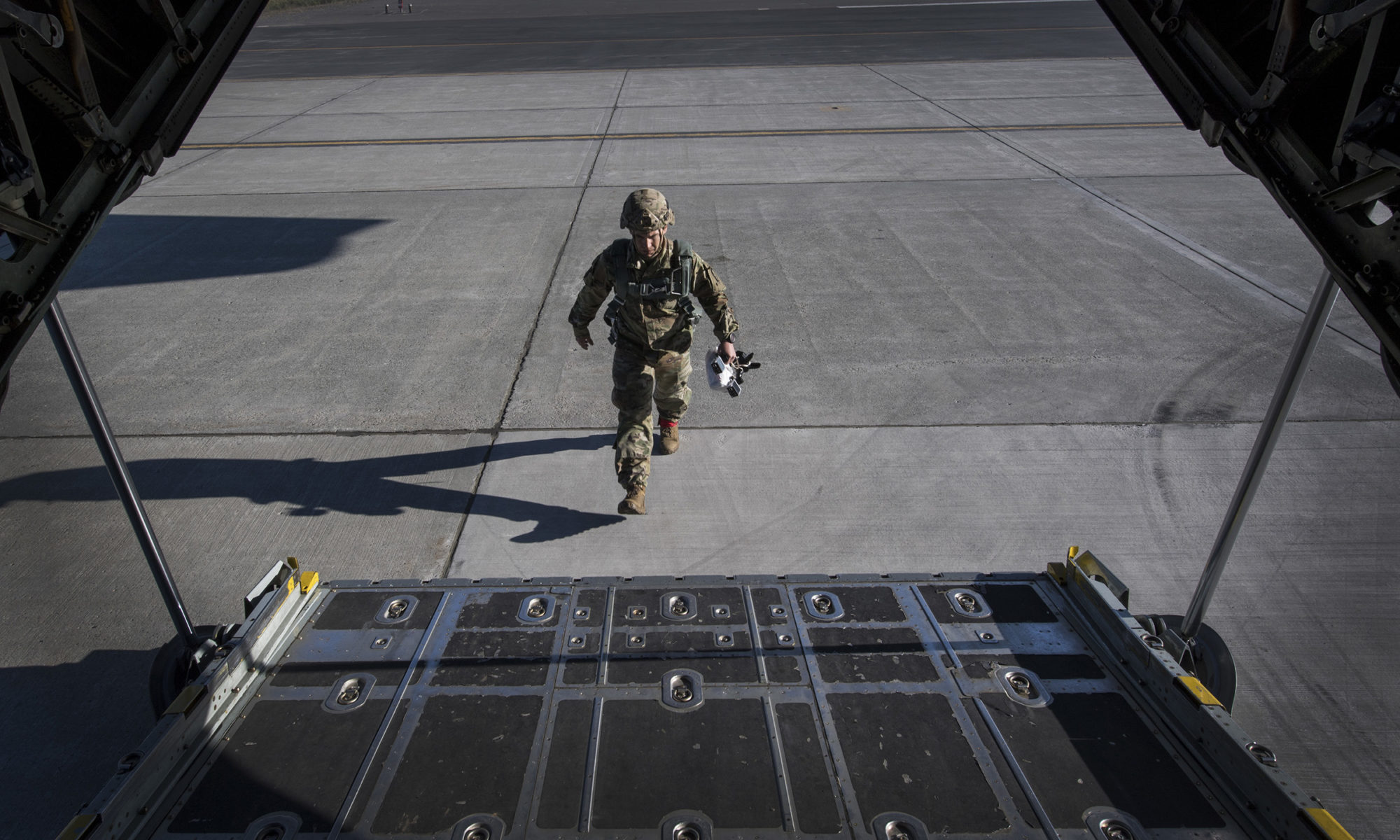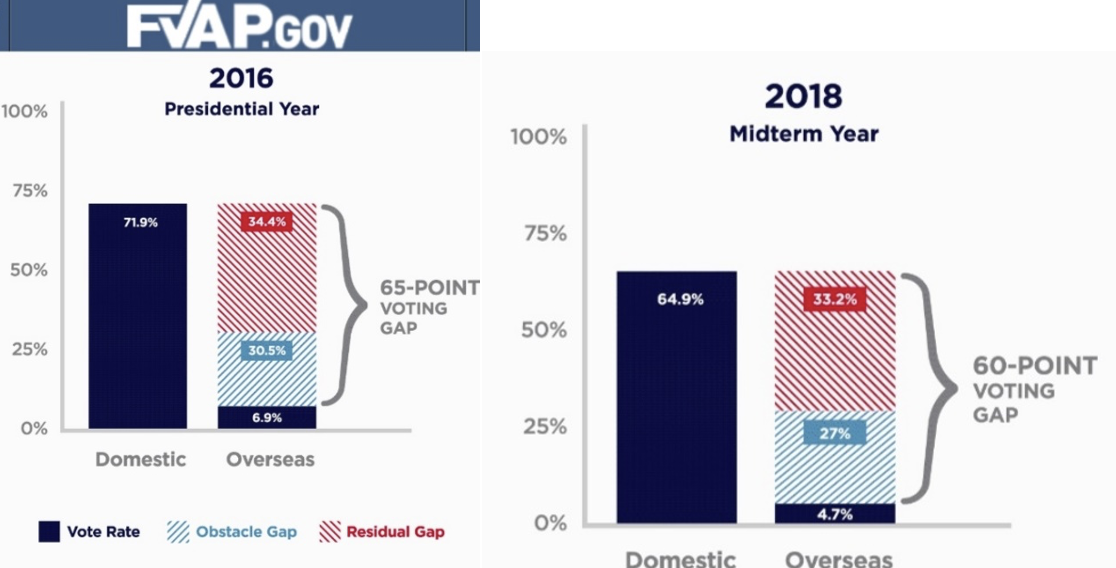By Rachel Wright, Policy Analyst
Voters covered by the Uniformed and Overseas Citizens Absentee Voting Act (UOCAVA) face many challenges when attempting to cast their ballot. Both members of the military and overseas citizens often have limited access to technologies, such as printers and fax machines, that help them vote. Moreover, these voters often work or are stationed in remote areas where mail operations are intermittent or, in some cases, non-existent.
Voter Registration and Determining Voting Residency
For military and overseas citizens, voting barriers can often arise prior to ballot marking and return. Some UOCAVA voters may struggle to successfully complete their voter registration due to issues and uncertainties surrounding their residential address. Regardless of the state, voter registration laws require all voters to provide a residential address on registration materials. This address is considered the individual’s voting residence and determines which offices and candidates they are eligible to vote for. As a result, a voter’s residential address is often required to be located within the state where they are becoming a registered voter.
Unlike traditional absentee voters, it can be difficult for military and overseas citizens to determine their voting residence. For example, many overseas citizens living abroad no longer occupy a residence in the United States. In these instances, overseas voters may still consider their last residential address in the U.S. as their voting residence even if they no longer have property or other ties to that state or if their intent to return to that state is uncertain. However, these voters may not remember the details of this address, or they may be unaware of their state’s laws on this issue.
Similarly, military voters frequently change duty assignments which can result in their relocation to a new installation. In these instances, a voter may wish to establish residency or a domicile in their new duty location or remain a registered voter of their last residential address. As with overseas citizens, frequent reassignments can cause confusion regarding what is considered their residential address for voting purposes. They also may not remember the details of this address.
The Federal Voting Assistance Program (FVAP) has issued guidance on how UOCAVA voters should determine their voting residence. This guidance differs based on the type of UOCAVA voter. Guidance for military service members and their family members can be accessed at https://www.fvap.gov/info/laws/voting-residence. Guidance for overseas citizens can be accessed at https://www.fvap.gov/citizen-voter/voting-residence.
Assigning an Address for Voting Purposes
A small subset of UOCAVA voters may be able to identify and provide the details of their residential address but discover that this address is no longer considered valid for voter registration purposes. This can occur if a voter’s address is no longer considered a residence. For example, single-family homes or apartment buildings may be demolished for commercial development or following a natural disaster. Once the home or apartment building is torn down, the associated address is no longer considered a recognized residential address. This may occur more frequently among UOCAVA voters who have not lived at their voting residence for a significant period.
If this situation arises, states do not prohibit military and overseas citizens from becoming a registered voter in the precinct of their address. Many states do not explicitly address these situations in statute and likely handle them on a case-by-case basis. However, 10 states — Colorado, Florida, Hawaii, Montana, Nebraska, Ohio, South Carolina, Texas, Utah and Virginia — specify that the appropriate authority, often a local election official, can assign the voter an address solely for voting purposes as long as the voter meets the state’s residency requirements. This address must be within the same precinct as the voter’s residential address.
For example, South Carolina S.C. Code Ann. § 7-15-660 states “an overseas voter who is registering to vote, and who is eligible to vote in this State shall use, and must be assigned to, the voting precinct of the address of the voter’s last place of residence in this State… If that address is no longer a recognized residential address, the overseas voter must be assigned an address within the voting precinct of the last place of residence for voting purposes.”
Florida’s statute on the assignment of an address is wider in scope than other states. More specifically, a UOCAVA voter may be assigned an address even if their voting residence is still a recognized residential address. Florida law states that a voter who no longer has a permanent address in the county but intends to remain a resident of Florida and the county in which they are registered to vote may be assigned an address within the precinct of the office of the supervisor of elections. These procedures often apply to military voters who wish to register as a voter in the precinct of an address where they once lived, but no longer have any physical ties. In these instances, the local supervisor of elections will assign the voter an address for voting purposes.
Implications for Voter Rolls and Election Mail
The ability of military and overseas citizens to register to vote using their last residential address, or an address that was assigned to them can have significant implications for voter rolls and election mail. If an individual registers to vote using their last residential address, it is possible that those who currently live there are also using the same address to register to vote. As a result, voter rolls will show that multiple individuals are registered to the same address.
Similarly, if a UOCAVA voter’s last residential address is no longer recognized as a residence, they may be assigned the address of the office of their local election official. There is currently no limit on the number of voters that may be assigned the same address, if they meet the qualifications specified in state statute. As a result, voter rolls will show that multiple people have registered to vote using the residential address of their local election office.
Because of this, those who currently work or reside at the residential address associated with a UOCAVA voter’s registration may receive election mail that is directed toward the voter. This often happens when a voter’s residential address, rather than their mailing address, is used for mailing purposes. These situations do not imply that anything nefarious is happening or that a jurisdiction’s voter registration rolls are out-of-date. It simply means that a military or overseas citizen is registered to vote using that address.
Ultimately, the experiences of UOCAVA voters are unique and the barriers they face are not confined to the request and return of their ballot. For some, challenges may arise as early as the voter registration process. The process of assigning a UOCAVA voter an address is solely intended to ensure that these voters can successfully register to vote and cast their ballot in an election. Without such efforts, these voters risk being disenfranchised.





